- Register
- Log in to Tune-In
- Wishlist (0)
-
Shopping cart
(0)
You have no items in your shopping cart.
Beatles News

Many classic rock stars contributed to the canon of Christmas music. On the other hand, George Harrison decided to give us a New Year's song.
Many classic rock stars contributed to the canon of Christmas music. On the other hand, George Harrison decided to give us a New Year’s song. His decision to buck a trend worked out artistically. However, the tune isn’t as popular now as it could be for an undeniable reason.
Why George Harrison’s New Year’s song is great and underrated
Christmas music is such a big deal that The Beatles got in on it. They released an original song called “Christmas Time (Is Here Again).”After the band broke up, John Lennon put out “Happy Xmas (War Is Over),” Paul McCartney put out “Wonderful Christmastime,” and Ringo Starr released the album I Wanna Be Santa Claus. George never released a solo Christmas song, instead giving us the New Year’s anthem “Ding Dong, Ding Dong.”
While the track celebrates the New Year rather than Christmas, it takes some cues from Christmas music. Phil Spector’s Wall of Sound became a popular Christmas music trope since the producer put out his masterpiece A Christmas details

The Beatles’ catalog is packed to the brim with songs that have stood the test of time and are still beloved to this day. Many of their most popular tracks became hits when they were new, especially in the United Kingdom, the band’s home base. A few of their famous compositions never reached the weekly rankings, for one reason or another, but that doesn’t make them unsuccessful.
One of The Beatles’ most familiar and most-covered songs somehow escaped the U.K. charts for decades. That losing streak—if it can even be called that—is over, as the track debuts on one list across the pond.
“Blackbird” finally becomes a chart hit in the U.K., as of this week. The tune debuts at No. 96 on the Official Singles Downloads ranking, which tracks the bestselling legal downloads in the nation.
The Official Singles Downloads chart is the first list that “Blackbird” has appeared on in the U.K. That may be difficult to believe for many fans of the Fab Four—and the song itself—but it’s true. Despite its legacy and popularity, the title has never sold or streamed well enough in one tracking period to land on any list until now.
The Beatles details
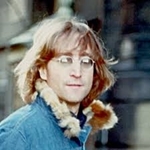
Despite being an American-dominated genre, there has been a fair share of foreign musicians to toil in country music. Ringo Starr, The Rolling Stones, Tommy Emmanuel, and numerous others hail from other countries yet still play the American-founded genre. However, there is one more monstrous name and figure to add to that list, the one and only, John Lennon.
For a vast amount of reasons, this might come as an enormous surprise. But, at the end of the day, Lennon’s fleeting stint in country music proves that above all, he was a pure musician. When one listens to Lennon’s 1974 country single, they might believe there is nothing country about. Though, given its use of steel guitar, American roots lyrics, and the story behind it, it is, without a doubt, John Lennon’s most country-inspired solo song.
The song came as a result of a wild weekend John Lennon and Harry Nilsson spent together in Los Angeles in 1974. In the book All We Are Saying, John Lennon told author David Sheff, “[It was done] just to write a song.” “You know, ‘Seein’ as we’re stuck in this bottle of vodka together, we might as well try and do something,” Lennon added.
Nil details

Paul McCartney‘s long, storied recording career has included forays into just about every style of music you could possibly imagine. On the 1972 single “C Moon,” recorded with the earliest incarnation of his band Wings, he lovingly tackled reggae.
McCartney played it light in a lyrical sense with the song, even creating his own lingo with the title phrase. “C Moon” hit the Top 10 on both sides of the Atlantic, despite having to overcome obstacles caused by “Hi Hi Hi,” the track with which it was paired as a double A-sided single. In the Key of “C”
When Paul McCartney emerged to make music again following the breakup of The Beatles in 1970, he seemed determined to do so in a relaxed, off-the-cuff fashion, perhaps to temper the expectations of fans and critics. Both his first solo album (McCartney) and his first album with Wings (Wild Life) were somewhat ramshackle affairs, free of excessive fussing when it came to the writing and recording.
McCartney also seemed determined to broaden his horizons in the types of music he was going to make. While he had dabbled lightly in reggae with The Beatles (“Ob-La-Di, Ob-La-Da” features hints of details
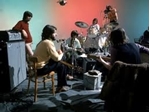
Richard Starkey, born in Liverpool and known throughout the world as Ringo Starr, is the constant reminder that The Beatles loved each other, respected each other, and worked like dogs to make good music. “Every generation listens to the Beatles. It’s fantastic. The remastering, for me, was great because you can hear the drums, really hear what was played, not so boom, boom, boom… I still love the tracks. There was a lot of energy. We realized ‘we’re working here,’ you know, we’re not partying down while doing the tracks. We did that occasionally, and the track was always shit. But we went in and we did our best,” says Starr, 84, in the room of a luxury London hotel, where he has locked himself away to launch the promotion of his new album, Look Up, which will go on sale on January 10.
Starr’s latest record consists of 11 country songs written mostly by T. Bone Burnett, Bob Dylan’s guitarist during the 1970s, and a composer and producer with several Grammys under his belt. This is not the first album of the genre released by the former Beatles drummer: over 50 years ago he composed and produced the album Beaucoups of Blues.
And anyone who has heard the details
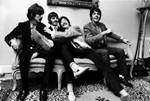
The Beatles’ Abbey Road is one of the bestselling albums that is still present on the Billboard charts. The classic has already sold more than 6.2 million copies in the U.S. alone since its release decades ago, but that doesn’t mean Americans are done with the set.
Abbey Road is on the rise on every ranking it appears on in the U.S. at the moment. The blockbuster climbs on five different tallies, thanks largely to a sizable uptick in purchases—one that is especially notable given not just how long the title has been available, but also how well it’s already sold.
In the past tracking period, Abbey Road was purchased by 7,750 Americans. That sum is up by more than 42% from last frame, according to Luminate. That’s a huge surge for a half-century-old release, regardless of the title or the band behind it.
Total consumption of the album also increased, but not by nearly as much. Including streams and sales of individual tunes featured on its tracklist, Abbey Road moved nearly 11,900 equivalent units last week. That’s a growth of almost 22% from the frame before, when it didn’t quite manage 10,000 units.
Source: Hugh McIntyre/forbes.com
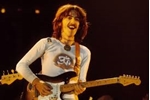
Dark Horse and its subsequent tour arrived 50 years ago amid a period of conflict and uncertainty for George Harrison.
His first marriage and Apple Records were crumbling. Meanwhile, Harrison had been led away from his spiritual center by the pressures of starting his own label, also called Dark Horse, and mounting the first U.S. tour by any member of the Beatles since their final 1966 jaunt.
A bout of laryngitis and Harrison’s determination to expose American audiences to Ravi Shankar as a co-headliner only made matters worse for some critics. Harrison and a touring band featuring talents like late-period Beatles collaborator Billy Preston, ace sessions drummer Jim Keltner, Tom Scott and Robben Ford bore the brunt of their disappointment.
“George liked people who could play different styles of music,” Robben Ford tells us, in an exclusive Something Else! Sitdown. “He said I did a good job of working with them. I was surprised by that, because I felt out of my depth, honestly, in some ways. It was very intense.”
Released in December 1974, Dark Horse barely cracked the U.S. Top 5, and didn’t even chart in the U.K. – a huge let down after two chart-topping details

The Beatles released “Ticket to Ride” as the first single from their 1965 movie/album Help!, and the song continued their unstoppable run of success. It topped the charts in the U.S., the UK, and several other ports of call.
You might not realize, however, the song could easily have been called “Ticket to Ryde” had John Lennon and Paul McCartney revealed the initial inspiration that got the ball rolling. The song’s lyrics then deviated from that source to depict a tale of heartbreak and woe.
That’s the “Ticket”
For many years, it was assumed John Lennon wrote the bulk of “Ticket to Ride.” Lennon gave thorough interviews both right after The Beatles broke up in 1970 and right before his death in 1980, in which he dissected the provenance of many of the band’s songs. He claimed in both to have penned the song.
But it’s important to remember that Lennon was rifling through those questions rapid-fire, which didn’t leave him a lot of room for nuance. In later years, Paul McCartney stepped forward and suggested that while Lennon might have had the original idea for songs like “Ticket to Ride,” Macca was very much in details
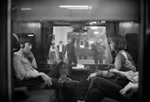
In 2027, a wildly ambitious cinematic project is slated to come to life: four biopics about The Beatles, each focusing on one member of the Fab Four. The casting is already tantalizing, with Paul Mescal apparently set to play Paul McCartney and Barry Keoghan confirmed to be taking the role of Ringo Starr.
While details are scarce, it seems likely that these films will offer something Rashomon-like—four perspectives on the same iconic story.
The idea of a Beatles Cinematic Universe is exciting. But what if it didn’t stop there? What if these films laid the groundwork for something even bigger: a Rock Cinematic Universe?
Allow me to propose Hollywood’s next blockbuster phenomenon: an interconnected web of movies chronicling the history of rock music, with a shared cast and storylines crossing over from one film to the next. Modeled after the Marvel Cinematic Universe, the Rock Cinematic Universe (RCU) would capture the genre’s sprawling history.
Fans of the MCU love a good crossover event, and rock music has plenty of those to offer. The Beatles' history alone is full of thrilling intersections. It’s conceivable that Roy Orbison will appear in the story, in scenes devo details

Billy Sheehan is widely considered one of the premiere rock bassists, with a resume that includes being an original member of Mr. Big, The Winery Dogs, and David Lee Roth’s solo band.
Lindsay Ell Talks Being Shania Twain's Lead Guitar Player & 'Love Myself'
As talented a bassist as Sheehan is, for him, no one in the rock world surpasses Paul McCartney. Billy shared his respect for the iconic Beatle during a recent interview on The Mistress Carrie Podcast.
During their conversation, host Mistress Carrie asked Sheehan if he could name a song with what he’d consider the best bass line.
Sheehan’s initial response was the 1966 Yardbirds song “Lost Woman,” which featured Paul Samwell-Smith on bass. He then moved on to pour praise on McCartney’s playing.
“Almost anything McCartney did is just brilliant,” he declared. “Some people don’t get it. I think if [you] give me enough time, I’ll get them to get it.”
Sheehan continued, “I would be happy to explain to anyone why Paul McCartney is probably the greatest … really, just a really great, great player.”
The 71-year-old musician then drew details

If you asked fans of either band, they could probably tell you a few key differences between the Beatles and the Rolling Stones. Though they are somewhat cut from the same cloth–both having blues inspirations and being apart of the “British Invasion”–they stand in contrast as well.
According to Keith Richards, there is one main difference that set the two bands apart. Find out what that is, below.
Well, I never kept a dollar past sunset
It always burned a hole in my pants
Never made a school mama happy
Never blew a second chance, oh no
I need a love to keep me happy
I need a love to keep me happy
Baby, baby, keep me happy
Baby, baby, keep me happy
Before digging deep enough to get into conversations about sound and attitude, the Stones and the Beatles have apparent differences that you can see at first glance. According to Richards, he marveled at the fact the Beatles had four unique singers while the Stones only had one, Mick Jagger. It’s something even Paul McCartney has marveled at in the past, despite having lived it first hand.
“I remember Keith Richards saying to me, ‘You had four singers. We only had one,&rsquo details

During the age of Beatlemania, the personal lives of the Fab Four were under constant scrutiny, and countless girls dreamed of being married to Paul McCartney. To the disappointment of many, McCartney was engaged to actress Jane Asher at the height of the Beatles’ fame in the ’60s, and he went on to be married three times, and famously had an enduring musical partnership with his first wife, photographer turned Wings cofounder Linda McCartney.
After his wife Linda’s untimely death, Paul married his second wife, Heather Mills, but the marriage didn’t last very long, and was plagued by tabloid scandal. Currently, McCartney is happily married to Nancy Shevell. Read on to take a deep dive into the musical icon’s marriages and learn which songs he wrote about the women in his life.
In 1959, Paul McCartney began dating Dot Rhone, a local Liverpool girl. They briefly became engaged when she unexpectedly got pregnant in 1960, but called it off after she had a miscarriage and were officially broken up by 1962. McCartney also admitted to having several affairs during the Beatles’ early days in Hamburg, Germany, while he was engaged to Rhone.
Source: Abbey Bender/yahoo.com
details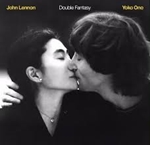
John Lennon and Yoko Ono’s fifth studio album, Double Fantasy, hit #1 on the Billboard 200 and went on to spend eight weeks in the top spot.
The album was released in November and initially didn’t perform well, but after Lennon’s Dec. 8 death the album became a commercial success. It was eventually certified triple Platinum by the RIAA.
Double Fantasy, recorded at the Hit Factory in New York City, featured such songs as “(Just Like) Starting Over,” which hit #1 three weeks after Lennon’s death; “Woman,” which peaked at #2; and “Watching The Wheels,” which peaked at #10.
The album went on to win Album of the Year at the 1991 Grammy Awards.
Source: Jill Lances/1430wcmy.com
details

In 1967 The Beatles were at the peak of their powers. The band had released the masterpiece 'Sgt Pepper's Lonely Hearts Club Band' that May, revolutionising popular music and topping the UK charts for 23 consecutive weeks.
The ground-breaking album was the soundtrack to the so-called 'Summer of Love', capturing the psychedelic zeitgeist. The band's next move continued with the experimental sound they had been developing since 1966's 'Revolver' and became 'Magical Mystery Tour', which was released as a double EP in December 1967.
Its initial US release included the classic tracks 'Hello, Goodbye', 'Strawberry Fields Forever', 'Penny Lane' and 'All You Need Is Love' and the album was loved by fans while garnering critical acclaim. However, the film of the same name it served as the soundtrack for was considerably less adored.
The 'Magical Mystery Tour' film aired on BBC1 in black and white on Boxing Day 1967. It was the third Beatles film, following 'A Hard Day's Night' and 'Help', which were released in 1964 and 1965 respectively.
Much of 'Magical Mystery Tour' was improvised and its story follows a group of people on a coach trip who then start to experience strange and surreal things. About its details

While many of us most commonly associate December 26 with Boxing Day or the start of Kwanzaa, for Fab Four Fans, the day after Christmas also marks the anniversary of Paul McCartney’s painful mishap that led to his iconic mid-1960s Beatles style.
Indeed, one of the oft-forgotten perks of being one of the biggest rock stars of the time is that when you suffer a blunder that alters your physical appearance, you can start a whole trend around it. Paul McCartney’s Blunder Led To Beatles’ Iconic Style.
On December 26, 1965, Paul McCartney was visiting his family over the winter holidays when his friend, Tara Browne, paid him a visit. The Beatle, at the height of his fame and enjoying the trappings of the well-to-do rock star life, had a couple of mopeds at his disposal, so he thought he and Browne could take a joy ride together. While the friends rode to McCartney’s cousin’s house, the pair admired the scenery, including the night’s full moon.
“It was an incredible full moon. It was really huge,” McCartney later recalled in Anthology. “I said something about the moon, and [Tara] said, ‘Yeah,’ and I suddenly had a freeze-frame image of mys details
